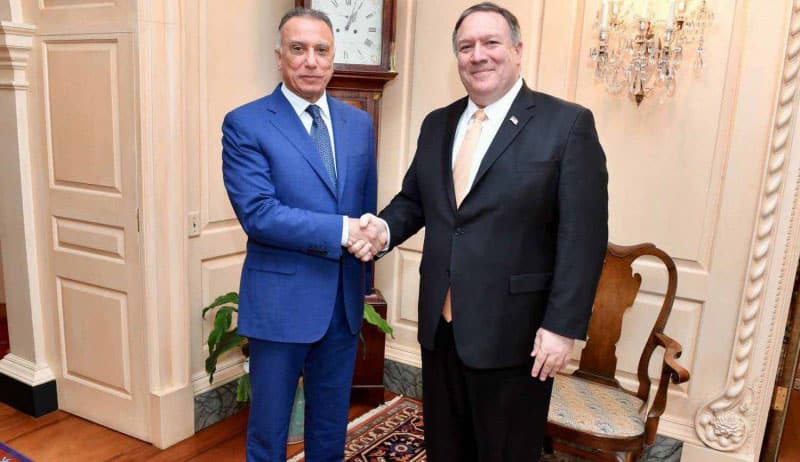The approval of Iraq’s first ministerial cabinet since November 2019 received a warm welcome from observers around the world. Key players in the region released messages of support as Iraq finally broke its political deadlock. Saudi Arabia, Iran, and the US all confirmed their commitment to work with the new government in Baghdad.
The US appeared desirous to provide a boost to the new prime minister, granting another waiver for the nation to buy Iranian energy, but the granted “permission” highlights Iraq’s precarious position and its dependence on foreign actors.
Iraq’s new prime minister, Mustafa al-Kadhimi, is the country’s former intelligence chief and has spent much of his career working in London. The US appears confident it can make overtures to Kadhimi that could result in warming relations between the two countries.
Iraq’s government had in January ordered the expulsion of US military forces from the country as the government responded to demands of some of the largest protests in its history. The US has so far ignored the Iraqi parliament’s decision as it hopes to find common ground with the country’s new leader.
Needed reforms
Iraq is in need of drastic reform to stop pervasive violence, economic instability, and political chaos. Kadhimi’s cabinet formation came after several compromises, and only time will tell how much practical support the ministers can expect from Iraq’s fragmented political landscape.
Kadhimi’s government has committed to finalizing a new electoral law, limiting free access to weapons to state actors, launching a national dialogue in response to earlier protests, and emphasizing the fight against corruption. The government will have to accomplish these difficult tasks amid a COVID-19 epidemic and a crisis of large numbers of internally displaced people and refugees.
Addressing Iraq’s ineffective security institutions and the presence of various armed militias will prove a monumental task, especially as many armed factions are aligned with and funded by foreign powers. By limiting access to weaponry to state actors, Kadhimi aims to reestablish state control over a country that has become a battlefield in the stand-off between the US and Iran.
With both Iran and the US eager to influence Iraqi policy-making, Kadhimi’s ability to reestablish national sovereignty for his country could prove the most daunting task. With both US Secretary of State Mike Pompeo and Iranian Foreign Minister Mohammad Javad Zarif congratulating him, he may soon have to disappoint one, or both, of the foreign powers.

